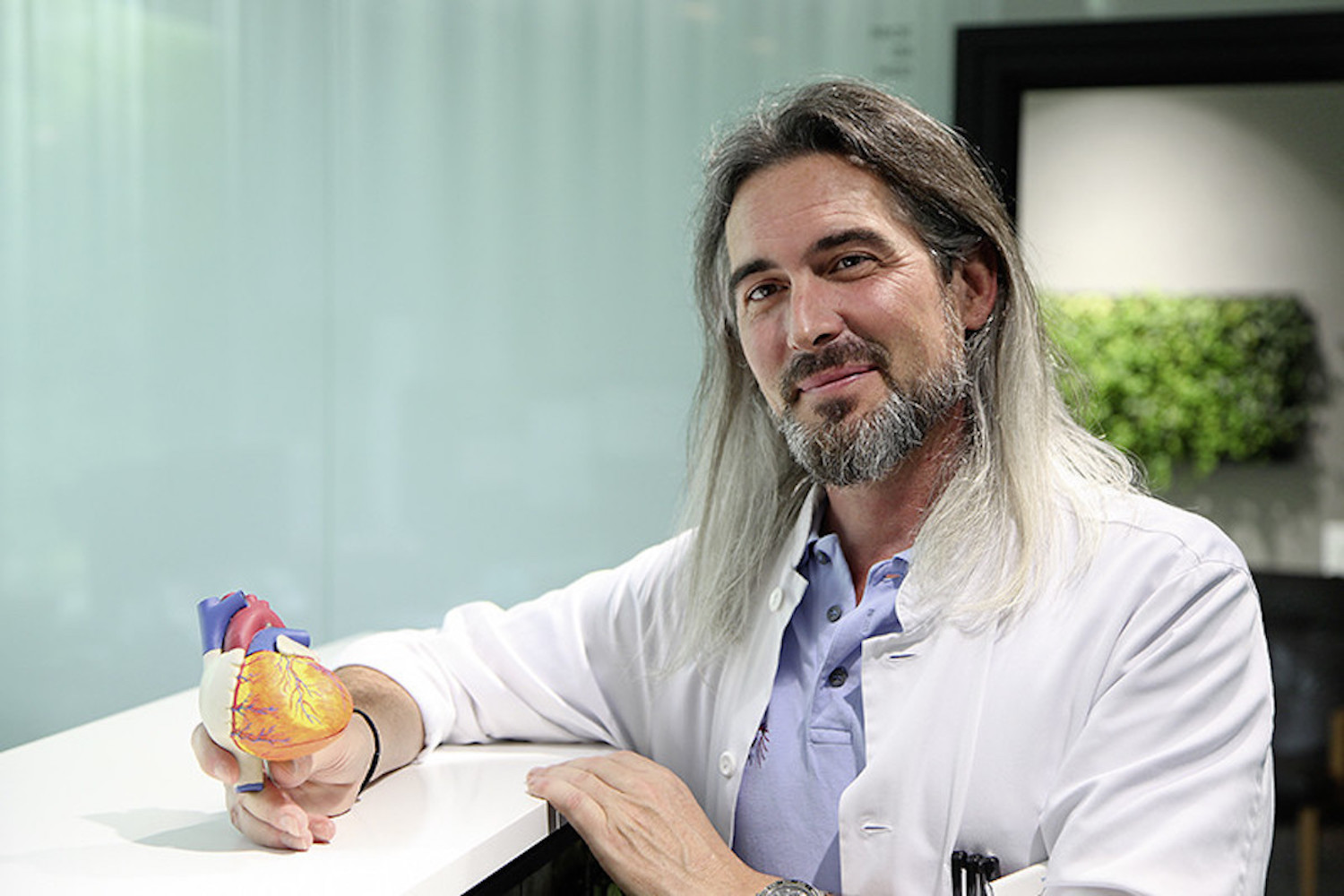Heart specialist Prof. Wyss recommends the service for patients aged 40 and over
After 40 at the latest, every heart needs a service. Cardiologist Prof. Dr. Christophe Wyss explains how to keep cardiovascular disease at bay and your heart healthy into old age.
The pistons and cylinders of the engine correspond to the heart chambers and the heart muscle
Service-maintained cars live longer. So do well-maintained hearts. “Everything has to work together smoothly in the engine, and the same goes for the heart,” says cardiology professor Dr. Christophe Wyss from the Hirslanden Heart Clinic in Zurich. “What the fuel line is to the combustion engine, the vessels are to the heart. They must not become blocked. The valves in the engine correspond to the valves in the heart. They must open rhythmically and close tightly again. The electrical system in the car controls the impulses of the spark plugs for smooth combustion in the engine. In the heart, it is the conduction system and excitation formation. And finally: the pistons and cylinders of the engine correspond to the heart chambers, including the actual heart muscle.”
10 most important service tips
During the cardiac service, the cardiologist checks whether the heart is working properly. Malfunctions, wear and tear and malfunctions must be detected and – where possible – rectified. Prof. Dr. Christophe Wyss recommends a regular heart check. These are his 10 most important service tips.
Strain the heart
Move regularly instead of just sitting. A car engine that sits unused in the garage will break down. So does a heart that only turns at idle.
Get enough sleep, reduce stress
Sleep deprivation is stressful. Stress drives up adrenaline levels. This in turn stresses the blood vessels, promotes arteriosclerosis, can disrupt the electrical system and ultimately damage the heart.
Lower blood pressure
When a combustion engine is under load, the oil pressure rises. The blood pressure in the body also rises under load. However, if it is high even without load, help is needed.
Adjust cholesterol
The body produces most of the cholesterol itself to form cell walls, bile acid, vitamin D and hormones. Good cholesterol keeps the blood vessels open, bad cholesterol is deposited in the blood vessels. Anyone who has too much bad cholesterol despite regular exercise and a healthy diet or because of a genetic predisposition needs treatment with medication.
Take unsaturated fats
Eat fish twice a week, especially oily fish, as it contains valuable unsaturated fatty acids. According to studies, certain omega-3 fatty acids, potassium, vitamin K2, magnesium, selenium, folic acid, niacin and the co-enzyme Q10 can promote heart health.
Do not smoke
The toxins in cigarette smoke destroy the vascular system and increase the risk of a heart attack. Oxidized cholesterol particles are deposited on the vascular walls, activate inflammatory processes and promote arteriosclerosis. Smoking and high cholesterol levels together increase the risk.
Eat less sugar
After years of constant bombardment with too much sugar, either the pancreas eventually fails or the muscle cells lose the ability to absorb sugar from the blood. Both are characteristics of type 2 diabetes. If left untreated, diabetes destroys the blood vessels, leads to dangerous deposits and ultimately threatens the heart.
Alcohol with moderation
Moderate alcohol consumption is not harmful to a healthy heart. However, you should be careful with secondary illnesses such as high blood pressure and diabetes.
Reduce excess weight
Weight itself is not the killer, but the secondary diseases that result from being overweight are.
Recognize alarm signs
If the engine stutters, misfires or other problems occur, the car must be shown to the mechanic, even if the last service has just been carried out. The same applies to the heart: suspicious symptoms such as shortness of breath, palpitations, chest pain or similar should be assessed by a doctor and clarified at an early stage.
Source: doktorstutz.ch


